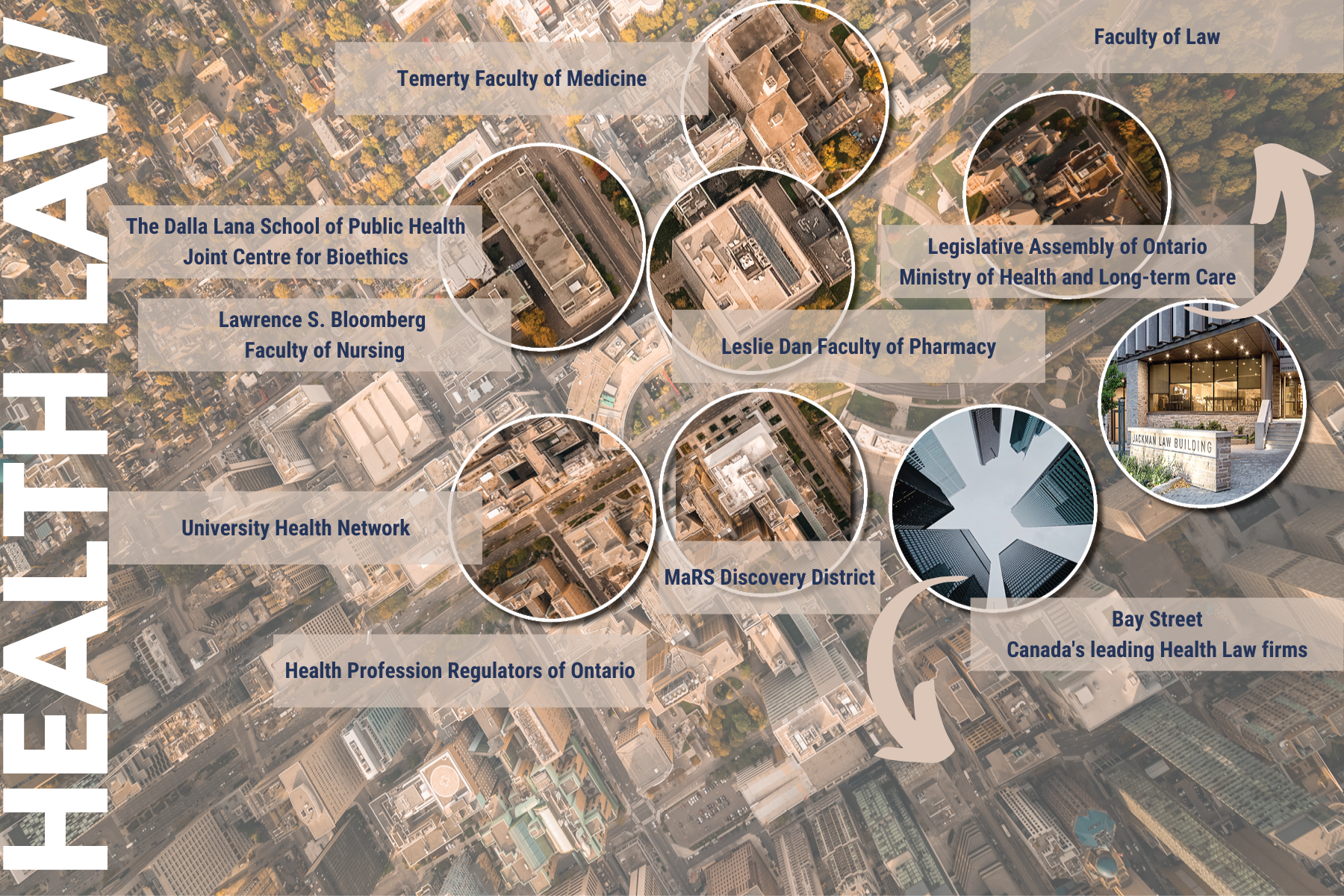Why health law is more relevant than ever
By Paul Fraumeni

Should getting a vaccination to prevent COVID-19 be mandated by government?
Can an employer require an employee to get the vaccination if they are to be working in that company’s physical location?
Should a patient with a mental illness be allowed by law to ask their health care providers to end their life? And if so, what safeguards should be in place?
How does the law help promote health equity for Indigenous people?
Is there a human right to essential medicines?

Every September, University of Toronto Faculty of Law professor Trudo Lemmens launches a new edition of a workshop called “Contemporary Issues in Health Law, Ethics and Policy” where these topics – and many others – are explained and explored in all their hues. Information and background are offered by Lemmens and a number of experts in a wide range of disciplines such as political science, philosophy, health policy, and public health. Debates take place, opinions are shared, personal experiences with health issues are related.
Why? No one would disagree that health care is at the core of human existence. But even something as inherently good as health needs what the law does – set standards and regulations, protect us when we are vulnerable and ensure equality.
“I always say to students at the beginning of the year that what's so fascinating about health law is that it's an applied field of law in the sense that health law is not like a body of isolated sets of rules that have their own existence. It's a subject area where we look at different areas of law and how they interact with health, with our own health, with health care, with the organization of health care, and with the organization of the profession.”
Health touches on everything. The COVID-19 pandemic has, of course, made that clear. Lemmens points out that health law has gained in importance in the last few decades. Even before COVID-19 snarled global society, “there are probably more legislative, regulatory, and policy initiatives and legal proceedings related to health than ever before.”
He adds that health care is one of the most significant components of public spending and that the Supreme Court of Canada has dealt with an increasing number of cases that are in the health law area. And as governments, colleges in the health professions, and international organizations struggle with health law-related issues, scholars who specialize in understanding the intersection of the law and health are being solicited for their expertise. This level of activity makes Lemmens a busy expert. As the Faculty of Law’s Scholl Chair in Health Law and Policy, his work doesn’t end with that one workshop. He also explores the intersection of the law with health through other credit courses – Health Law and Bioethics, Mental Health and the Law, Research Ethics, and, in partnership with St. Michael’s Hospital, a Clinical Legal Education: Externship – Health Justice Program Clinical Placement.
And you’ve probably heard or read him in the media. Lemmens, who joined U of T Law in 1997, is a sought-after authority on all the ramifications for health and law, with a speciality in areas such as medical assistance in dying (MAID) and the governance of the pharmaceuticals.
He often takes part in media discussions where sensitive topics are explored. Take, for example, a 2020 CBC National town hall on MAID. Dr. Naheed Dosani, a physician at St. Michael’s Hospital in Toronto who runs a palliative care program for people experiencing homelessness, asked a question about the role of palliative care in the wider issue of MAID.
The host, Andrew Chang, turned to his panel of experts and asked Dr. Madeline Li, a clinician-scientist at Princess Margaret Hospital, to comment. And then he turned to Lemmens for his thoughts.
“It’s clear that the priority should be on the right to health care, the right to have access to have adequate care, that medical assistance in dying…is seen as an exceptional measure to facilitate a transition between life and death. We’re now expanding that in an area where decision-making is very complex. So all of this makes me very concerned about are we prioritizing, indeed allowing, people to live their life to the fullest possible, with the fullest possible health care support or are we seeing, for one reason or another, medical assistance in dying as a magical solution to suffering?”
Authoritative scholarship has long been a hallmark of U of T’s health law program. For years, a small but highly lauded and influential Health Law Group made its mark on a number of fronts. In addition to Lemmens, Bernard Dickens and Rebecca Cook – the founders of the group and now professors emeriti – became internationally renowned, particularly for their work in reproductive health law and Colleen Flood (now at the University of Ottawa) for her work on health systems and policy.
While Lemmens is currently the only professor in health law, the Faculty is now in the early stages of planning to reinvest in the discipline.
“U of T has a very strong tradition in health law,” says Lemmens. "We have been instrumental in Canada and globally in teaching students, both undergraduate and graduate, future lawyers, legal scholars and health and policy professionals in this field. And at a time when health is more top-of-mind than ever before, we absolutely need to recreate and reinvest in this area.”
He adds that the field is growing at universities around the world, with notable programs at McGill University, Université de Montréal, the Universities of Ottawa, Dalhousie and Alberta, Harvard, Georgetown, Stanford, Yale, Boston and Saint Louis, and at Oxford University’s Centre for Health, Law and Emerging Technologies (HeLEX).
But he emphasizes that U of T’s group was, “a model for health law scholarship. Interestingly, all of the health law group members, past and present, of our Faculty used to be solicited to visit leading and emerging law faculties to explore possible collaboration in health law or to help strengthen their programs. U of T is a real pioneer in this field.”
And those connections should help the health law program to reinvent itself. Lemmens points out the Faculty of Law is also developing important partnerships with other faculties and departments throughout the university.
“U of T is the logical place to invest further in health law,” says Lemmens, who has cross-appointments in the Dalla Lana School of Public Health, the Department of Psychiatry, and the Joint Centre for Bioethics. “We have one of the leading schools of public health in North America. We have a faculty of engineering that does a lot of work in health technology and there are the faculties of nursing, pharmacy, dentistry, and, of course, one of the world’s great faculties of medicine. We are connected to nine partner research hospitals, in addition to a variety of special centres related to health in areas such as bioethics and stem cells. What we do in exploring health law is very much informed by interacting with all of these groups.”
And a revitalized health law group in the Faculty of Law, in collaboration with these other centres of expertise throughout U of T, will enable advanced work in what Lemmens feels is at the core of health law – empowering people in the context of inherent vulnerability.
“There is a point in every person’s life when they face certain vulnerabilities in relation to health. When you’re a newborn or suffer from a serious illness, or when you have a life-threatening situation or become elderly. We all face vulnerability in the context of health and the law is an interesting tool to think about how you will deal with that. The law can empower people.”
Paul Fraumeni is an award-winning Toronto freelance writer and editor. To learn more visit his website: paulfraumeni.com